Space

Educators and Parents, Sign Up for The Cheat Sheet
Weekly updates to help you use Science News Explores in the learning environment
Thank you for signing up!
There was a problem signing you up.
-
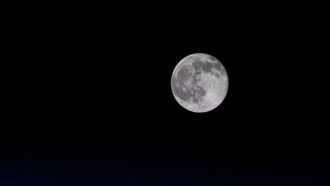 Space
SpaceLet’s learn about the moon
The moon is Earth’s nearest neighbor, and its gravity helps stabilize the planet’s climate and creates the tides.
-
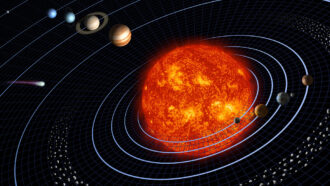 Space
SpaceScientists Say: Planet
Planets have to orbit a star, be big enough to form a sphere and keep other objects out of their path around their star.
-
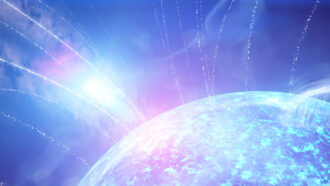 Space
SpaceExploding neutron star proves to be energy standout of the cosmos
This is what scientists had suspected. But until one showed up outside our galaxy, they couldn’t be sure. Now they are.
-
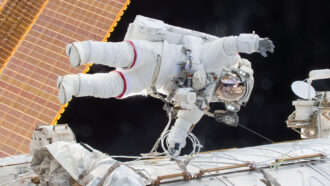 Space
SpaceSpace travel may harm health by damaging cells’ powerhouses
Biochemical changes after going to space suggest that harm to cells’ energy-producing structures, called mitochondria, could explain astronauts’ health issues.
By Jack J. Lee -
 Physics
PhysicsLet’s learn about gravity
Gravity is an attraction between objects with mass. The more massive the object, the more gravity it’s got.
-
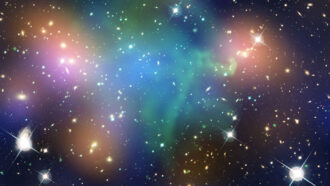 Space
SpaceOur feverish universe is getting hotter every day
For the first time, astronomers have taken the temperature of the cosmos at different times in its history. Galaxy clusters are cranking up the heat.
-
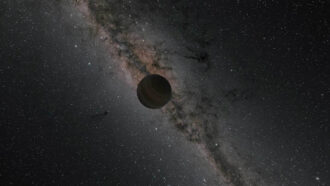 Space
SpaceRogue planets wander the galaxy all alone
Some planets don’t orbit stars. They were kicked into space long ago. The newest, smallest one found is only about as massive as Earth.
-
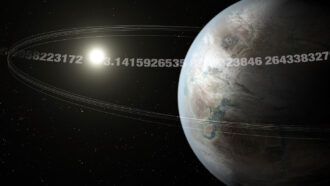 Space
SpaceMeet ‘Pi’ — a new Earth-sized planet
Searching through data from NASA’s K2 Mission, researchers found a new planet. Some call it K2-315b, others smile and refer to it as “Pi Earth.”
-
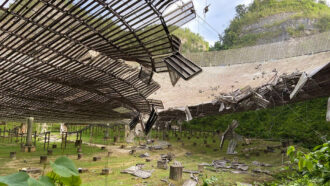 Space
SpaceStar of science and movies, the Arecibo radio telescope is dead
Broken cables led to catastrophic damage of its history-making dish. The U.S. National Science Foundation will now dismantle what remains.
-
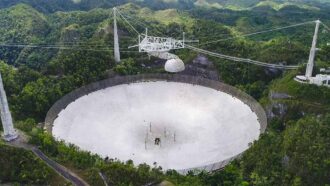 Space
SpaceWhy Arecibo’s loss is such a big deal for astronomy
Damage to the radio telescope in Puerto Rico has robbed scientists of a special tool for studying everything from asteroids to galaxies.
-
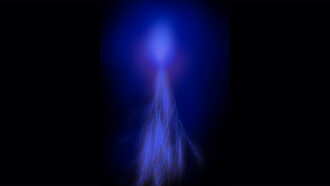 Space
SpaceJupiter may have ‘sprites’ or ‘elves’ in its atmosphere
This is the first time that scientists have seen hints of these weird side effects of lightning storms somewhere other than on Earth.
-
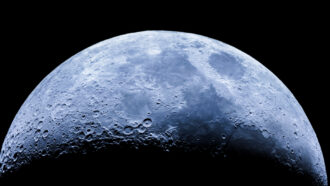 Space
SpaceThere’s water on sunny parts of the moon, scientists confirm
The new observations were made by a telescope on board a jet in Earth’s atmosphere. They confirm the presence of water on sunlit areas of the moon.